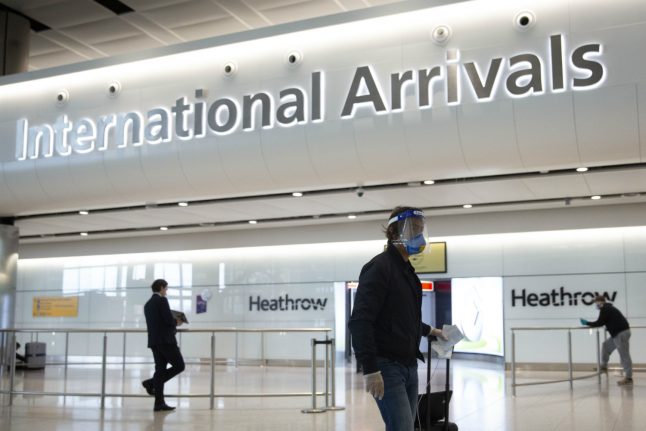The UK on July 10th began lifting its quarantine for travellers from certain countries that it deemed 'safe' – including Germany.
However, although it is no longer necessary to self isolate when travelling to the UK from Germany, passengers do need to fill out the contact locator form before leaving the country.
The form asks for detailed information about your journey, where you will be staying in the UK, contact information and details of someone who can be contacted if you fall ill – so it's best not to leave the form to the last moment as your train/ferry/flight is about to depart.
You can look access the form here. Passengers have the choice to either show a printout or a completed version on their phone. You cannot submit the form more than 48 hours before you travel, so make sure to check your timings so you don't have any problems when travelling.
The information you need to provide includes:
- your passport details
- the name of the airline, train or ferry company you’re travelling with
- the name of the company organising your tour group – if you’re travelling as part of a tour group
- your booking reference
- the name of the airport, port or station you’ll be arriving into
- the date you’ll be arriving
- your flight, train, bus or ferry number
- the address you’ll be staying at for your first 14 days in the UK
- details of someone who can be contacted if you get ill while you’re in the UK
If you’re travelling by Eurostar or Eurotunnel:
- put ‘Eurostar’ or ‘Eurotunnel’ when the form asks ‘What is the flight number, train service or ship name that you will arrive on?’
- provide your scheduled time of departure
People travelling from the UK to Germany will be given information about the procedure when they leave the country.
The UK did not have international travel restrictions during the strictest phase of the lockdown, but on June 8th introduced a mandatory 14-day quarantine for all international arrivals.
From July 10th these were lifted for arrivals from a list of 'safe' countries which included European countries like Germany.
The initial announcement from the UK government referred only to arrivals in England, but devolved authorities in Scotland, Wales and Northern Ireland later confirmed that they would be applying the same rules.
Germany began, lifting its travel restrictions for arrivals from within Europe on June 15th.
From July 1st the EU began opening up its external borders to countries deemed to be low risk from Covid-19, although travellers from the USA remain excluded.
READ ALSO: When will Americans be allowed to travel to Germany again?



 Please whitelist us to continue reading.
Please whitelist us to continue reading.
Member comments